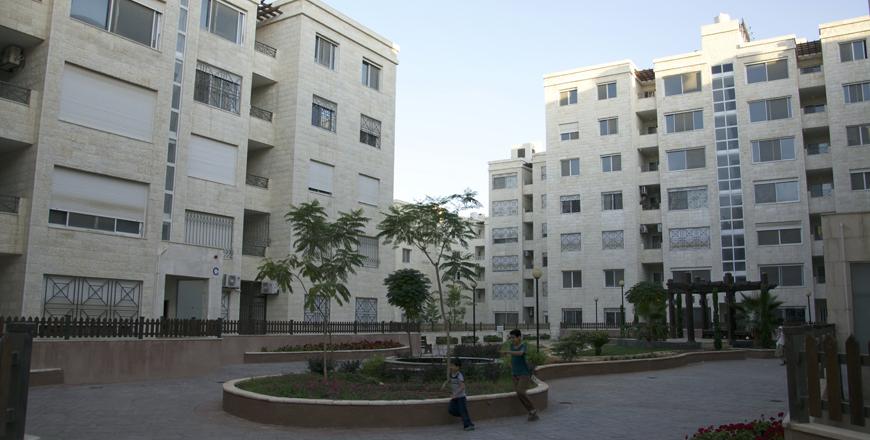You are here
Flavoured molasses yields bonanza for Jordan’s Al-Eqbal Investment Co.
By Samir Ghawi - Aug 10,2015 - Last updated at Aug 10,2015
AMMAN — Production and distribution of flavoured molasses is growing Al-Eqbal Investment Company (EICO) into a roaring success.
According to a disclosure sent to the Jordan Securities Commission this month, the company indicated that midyear sales went up by 25.2 per cent and that gross profit surged by 27.1 per cent.
A summary of the consolidated interim financial results showed that sales during the first half of this year amounted to JD62.5 million, compared to JD49.9 million during the same period of last year.
After deducting production costs, gross profit as of June 30, 2015 came at JD25.8 million, compared to JD20.3 million at the end of June 2014.
The net pretax profit for the first half of this year boiled down to JD17.8 million when further reductions associated with administrative, selling and distribution expenses were taken into consideration, in addition to other earnings.
As of June 30, 2014, the net pretax profit stood at JD13.2 million.
The company's 23rd annual report covering last year's operations indicated that besides local sales in all governorates and cities in Jordan, exports reached 85 countries around the world.
The report said the export list included 10 new markets spread over Asia, Europe, Africa and Latin America.
Noting that sales in 2014 amounted to JD106.3 million, the company expects sales in 2015 to be 15 per cent higher.
EICO generates most of the income from its factory in Ajman in the United Arab Emirates, where 536 labourers worked at the end of last year in the production of molasses.
To enhance its leading market position with Al Fakher brand of molasses, the company has added accessories as an extra line of business describing it as an extension and a supplement to the molasses activity.
Al-Eqbal Chairman Samer Tawfiq Fakhouri told a recent general assembly meeting of shareholders that the accessories, as an associated activity, is expected to generate $3.5 million profit.
Shareholders heaped praise on the management for the accomplishments achieved by the company, especially its distribution of cash dividends for a number of years a rate of 100 per cent.
A shareholder went as far as describing the company as a goose that lay golden eggs.
But, noting that staying at the top is harder than climbing to it, he expressed concern about continuing with a subsidiary engaged in renewable energy.
"I am worried that Al Taif International Investment Company is a deviation from Al-Eqbal's basic and customary line of business," the shareholder said.
The chairman responded that the decision to enter the renewable energy field was taken more than two and a half years ago trusting that this promising sector is one of the most important resources that the world relies upon.
"I think that within 3-4 years and with time, experience, knowledge and understanding we undoubtedly shall have a share in this vital sphere," Fakhouri said.
He indicated that the subsidiary does not engage in manufacturing but its activity is rather commercial by transforming the solar energy into electricity.
"Shareholders should not expect a newly established company to generate profit at the start of its operations and we may need a year or two to reap the fruits," the chairman said.
He added: "From a strategic point of view, the renewable energy business will be reviewed and a decision will be taken on whether to continue with it or exit this activity."
Since establishment, the losses of Al Taif amounted to slightly less than JD1 million.
Another shareholder described Al-Eqbal as a jewel in the Amman Stock Exchange noting that it is the only company that distributed more than JD90 million in cash dividends during four years.
"We at Al Fakher are considered number one in the world and the company that directly come behind us is Egypt's Al Nakhlah owned by Japan Tobacco International," Fakhouri said.
The chairman told the general assembly that any amounts disbursed to shareholders will not be at the expense of achieving new investments in production capacity or in warehouse expansion.
"I assure you that only the surplus is distributed to shareholders," he stressed.
Fakhouri said that recently there was a 25 per cent expansion in the production capacity of molasses at a cost that did not exceed JD2 million.
He added that in the near future there is no need for capital investment and that any expansion in activity can be accomplished without much capital.
According to summary showing financial results over a period of six years, pretax profit shot up from JD11.4 million in 2009 to JD28.3 million in 2014, total assets climbed from JD86.3 million to JD99.6 million and shareholders equity from JD40.1 million to JD68.6 million.
Four major shareholders who owned 57.4 per cent of Al-Eqbal's capital at the end of last year were: Tawfiq Shaker Khader Fakhouri (17.3 per cent), Bank of Jordan (13.9 per cent), Al-Eqbal Jordanian General Trading Company (9.6 per cent), and Arab Gulf Company for Investment and Transportation (16.5 per cent).
The remaining 42.6 per cent of equity, or 10.6 million shares, belonged to 1,974 shareholders.
Related Articles
AMMAN — Al-Mehanya for Real Estate Investments and Housing Co.
AMMAN — Amman Stock Exchange (ASE) has conducted the periodic quarterly review of the ASE index constituents to ensure that its Genera
AMMAN — It is customary for different kinds of businesses to become public shareholding companies, but Al-Ekbal Printing & Packaging Co.















